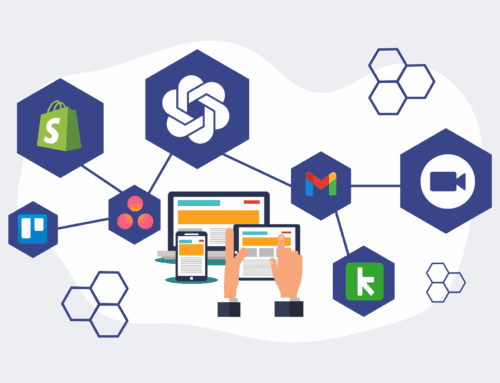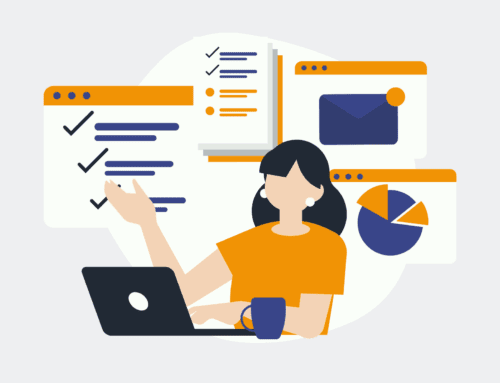The Future of Work: How AI and Automation Are Reshaping HR Jobs
The conversation around AI and automation often conjures images of job displacement, particularly in sectors perceived as ripe for efficiency gains. HR, traditionally a cornerstone of human interaction, is certainly not immune to this disruption. However, at 4Spot Consulting, we see a far more nuanced and ultimately empowering future for HR professionals. This isn’t about replacing people; it’s about elevating the human element, redefining strategic value, and liberating HR leaders from the tyranny of administrative minutiae.
From Administrative Burden to Strategic Imperative
For decades, HR has been saddled with an immense amount of transactional, repeatable work: sifting through resumes, scheduling interviews, managing onboarding paperwork, processing payroll, and fielding basic employee queries. These tasks, while essential, often prevent HR teams from engaging in the higher-level strategic work that truly impacts an organization’s growth and culture. This is precisely where AI and automation shine brightest.
Imagine an HR department where AI-powered tools handle the initial screening of thousands of applications, identifying top candidates based on predefined criteria, skills, and even cultural fit indicators. Automation then seamlessly schedules interviews, sends personalized communications, and initiates background checks. This isn’t a distant future; it’s the present reality for businesses leveraging intelligent automation. The immediate benefit? A significant reduction in time-to-hire, a higher quality of candidate presented to hiring managers, and a colossal freeing up of HR’s time and resources.
Reshaping Recruitment and Onboarding
The impact of AI on recruitment is perhaps the most visible. Beyond initial screening, AI can analyze market trends to predict talent shortages, identify optimal sourcing channels, and even personalize candidate experiences based on their interactions. For onboarding, automation ensures that every new hire receives the correct forms, access credentials, training materials, and welcome messages at precisely the right time, creating a consistent and positive first impression. This structured approach reduces human error, ensures compliance, and allows HR professionals to focus on the human connection during onboarding – mentoring, cultural integration, and ensuring new hires feel valued from day one.
Empowering Employee Experience and Development
Beyond the hiring funnel, AI is poised to revolutionize the ongoing employee experience. Chatbots and virtual assistants can answer common HR questions instantly, from benefits inquiries to policy clarification, providing 24/7 support without human intervention. This immediate access to information improves employee satisfaction and reduces the volume of repetitive queries that land on an HR manager’s desk. Furthermore, AI-driven analytics can identify patterns in employee engagement, predict turnover risks, and even recommend personalized learning and development pathways based on an employee’s performance, career aspirations, and organizational needs.
This shift allows HR to move from being reactive problem-solvers to proactive architects of employee growth and organizational culture. Instead of chasing paperwork, HR leaders can dedicate their expertise to strategic workforce planning, talent development, succession planning, and fostering an inclusive and high-performance environment.
The Indispensable Role of the Strategic HR Leader
With AI handling the transactional, the role of the HR professional evolves into that of a strategic partner, an analyst, a cultural champion, and a change agent. Expertise in human psychology, emotional intelligence, complex problem-solving, and ethical decision-making becomes more critical than ever. HR leaders will need to interpret the insights provided by AI, guide the adoption of new technologies, and ensure that automation serves to augment human potential rather than diminish it.
This means understanding how to implement these systems effectively, ensuring data privacy and security, and continually optimizing workflows. It’s about leading the charge in designing a future where technology empowers people, not replaces them. At 4Spot Consulting, we recognize that true transformation comes from a strategic approach to automation, ensuring that every technological integration is tied directly to clear business outcomes like reduced operational costs, increased scalability, and improved employee experience.
Navigating the New Era with Confidence
The future of work in HR is not one to be feared but embraced. It promises an era where HR professionals are freed from the mundane to focus on what truly matters: people. By strategically integrating AI and automation, organizations can build more efficient, scalable, and human-centric HR functions. This requires foresight, the right technological partners, and a clear roadmap for implementation – precisely what we provide through our OpsMap™ framework. This isn’t just about adopting new tools; it’s about fundamentally rethinking how HR delivers value, ensuring the human resource remains the most valuable asset in an increasingly automated world.
If you would like to read more, we recommend this article: Strategic HR’s New Era: The Indispensable Role of AI Automation Consultants








